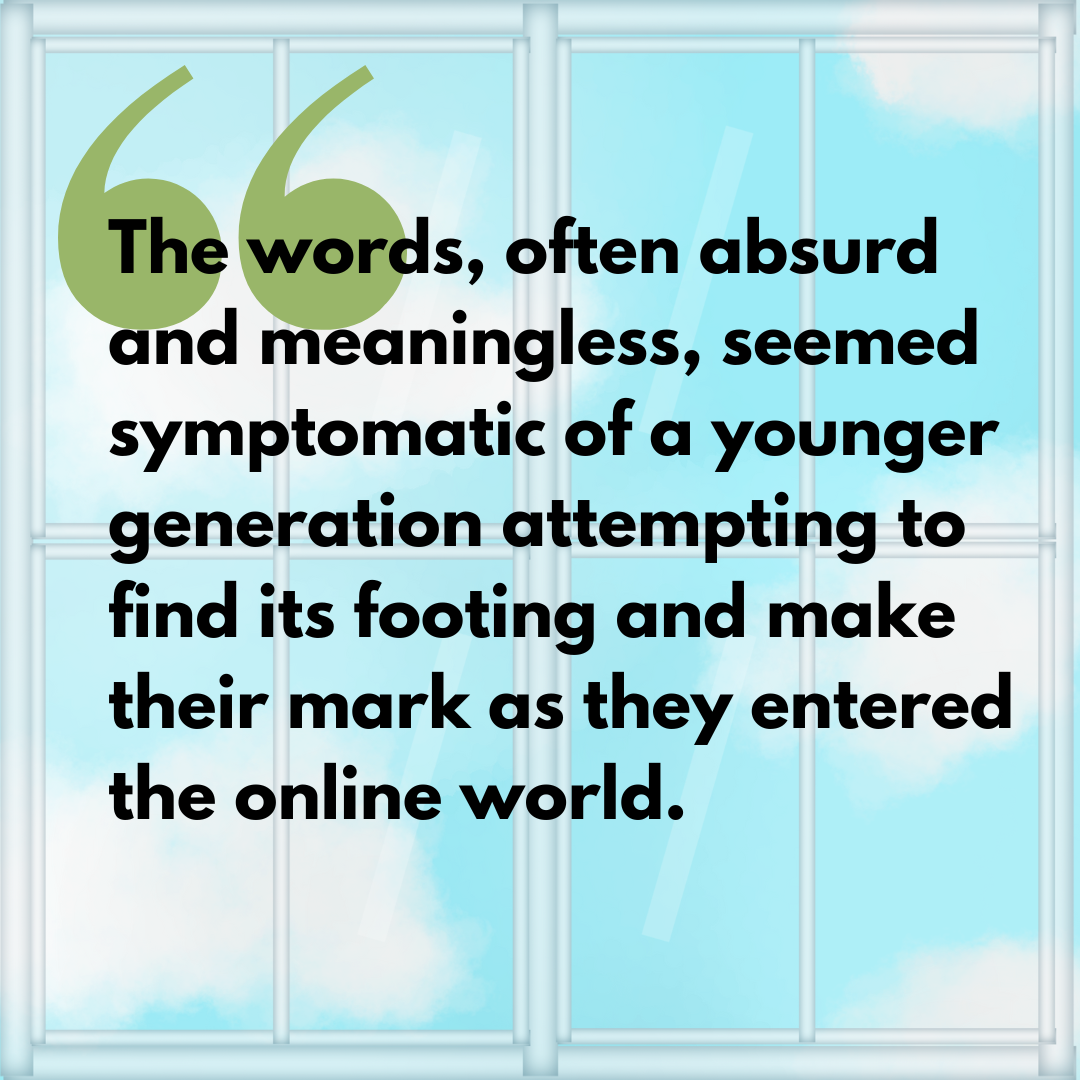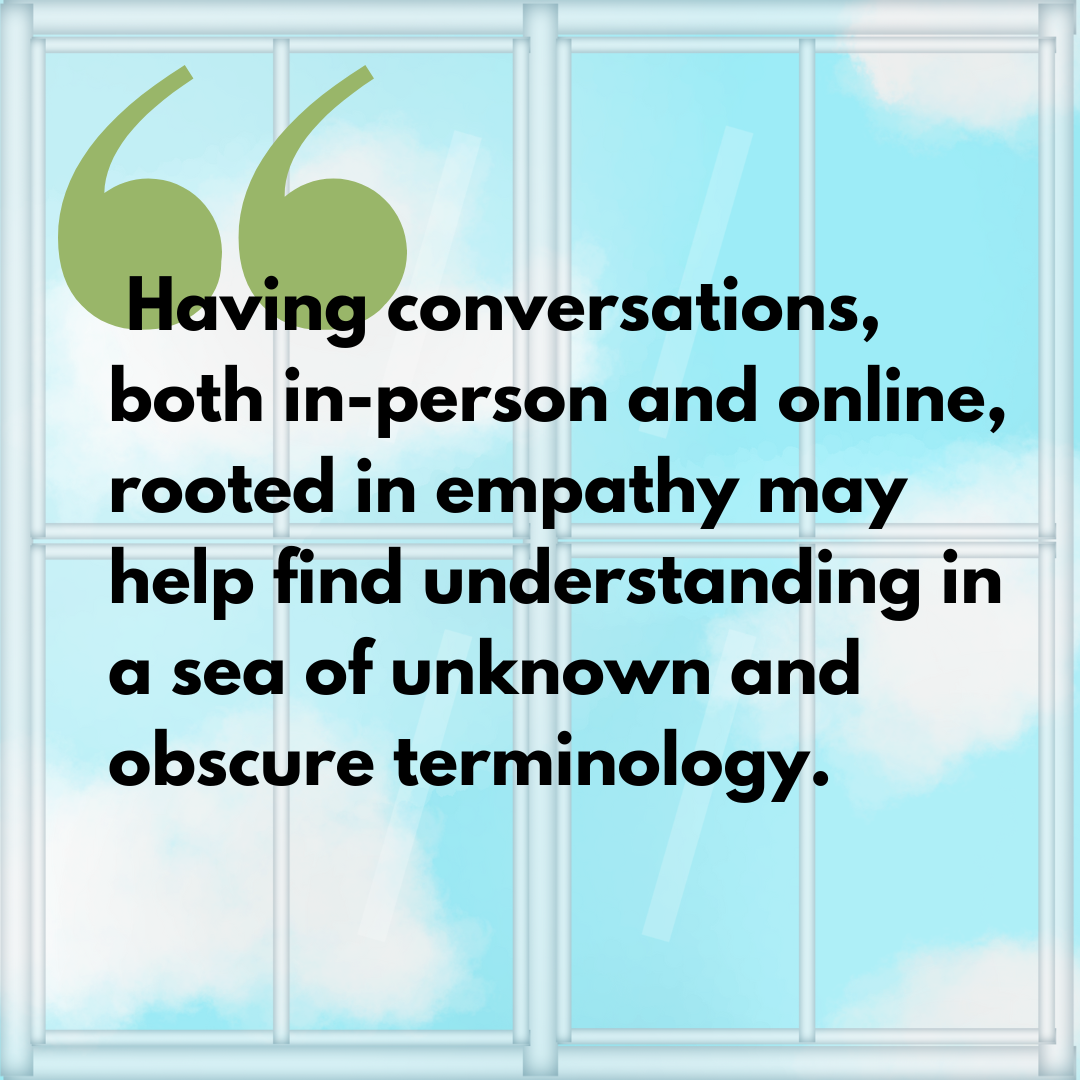Just as millennials have embraced “YOLO” and Generation Z has our “simp,” Generation Alpha, which includes children born in the 2010s and beyond, has now emerged with their defining term: the skibidi toilet.
This unsettling, cartoonish man, whose head is stuck in a toilet and shouts nonsense, has gained tens of millions of views across several platforms. The trend, at first, seemed like just another cog in the ever-turning trend cycle, yet another meme to forget just as quickly as it had gained popularity. Instead, the video kept circulating, gaining relevance long past its expected due date. The emergence of “skibidi toilet” acted as a catalyst, prompting the rise of other phrases like “rizz” and ‘sigma.’ These words cemented themselves with Gen Alpha as the building blocks of their own language — brainrot.
Brainrot is an umbrella term for the growing list of slang that has become popular with elementary and middle schoolers. Despite its prominence, older generations, which now includes our Gen Z, have taken to social media to poke fun at the terminology through ironic usage.
It is easy to understand the initial, mocking reaction on our part — the words, often absurd and meaningless, seemed symptomatic of a younger generation attempting to find its footing and make their mark as they entered the online world. Like fraternity initiations, we, as the veterans on the internet, collectively found community and laughs picking on the new guy and their cringy attempts to come off as cool. The rapid evolution of digital culture, where trends shift faster than ever, often leaves younger users scrambling to keep up with what’s considered “cool” or acceptable in the ever-changing landscape.

Yet, as slang continues to evolve and define each new generation, our constant barrage of hate and irony has slowly turned from being funny commentary to just being out of touch. Just as we make fun of millennials for their use of outdated slang like “swag” and “lit,” Gen Z also runs the risk of taking up that mantle if we continue to alienate ourselves from the younger generations.
Generational hostility, a continuing trend where generations often struggle to relate and empathize with each other, can be epitomized by the struggle to accept and embrace the slang of other generations. By constantly ridiculing the language of future generations, we create a rift between the trends and events of then and now, pushing our identity into the labelled boxes with an “us versus them’”mentality.
Yet, generations are not meant to be firm boundaries. In order to overcome the cycle of judgement and hostility that continues between each passing generation, the solution stems from an open dialogue across generations. We must be more open-minded to new terminology that we may otherwise not understand, which may mean opening up Urban Dictionary once in a while to keep up with the exponentially growing list of brainrot. Extending this olive branch, especially online, to younger generations can bridge a generational gap that has otherwise been worsened by them constantly being the butt of our jokes online.
It’s important to note that this generation is not so far away either. The incoming freshman class of 2029 next year will be the first year to include students from Generation Alpha. With a younger audience finally growing up and moving into high school and popular social media spaces, the world around us will soon be saturated with a new language that we can no longer joke about. 
By no means does this suggest that we need to implement brainrot terms into our everyday vocabulary. Communication intergenerationally does not require a mirror-match, but rather a desire to understand each other despite different approaches to conversations. The Notre Dame of Maryland University suggests approaching conversations with other generations requires intentionally considering your audience’s background and personalizing conversations accordingly. Having conversations, both in-person and online, rooted in empathy may help find understanding in a sea of unknown and obscure terminology.
Ultimately, brainrot is here to stay. Professional companies like Duolingo and Nutter Butter have already begun to embrace the slang as a form of marketing for younger audiences. As this language becomes more widely referenced and accepted in everyday life, Generation Z has to keep up with the times, or risk becoming the butt of the joke ourselves.












